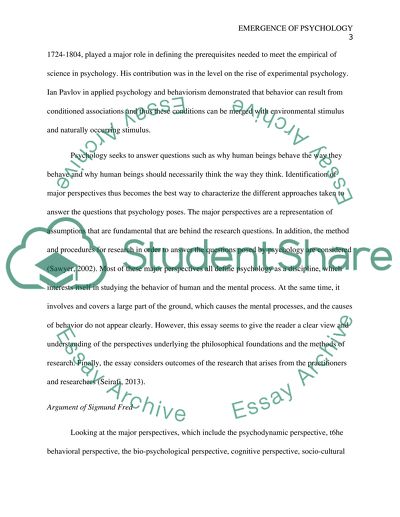Cite this document
(“Emergence of Psychology Research Paper Example | Topics and Well Written Essays - 2500 words”, n.d.)
Retrieved from https://studentshare.org/psychology/1492131-emergence-of-psychology
Retrieved from https://studentshare.org/psychology/1492131-emergence-of-psychology
(Emergence of Psychology Research Paper Example | Topics and Well Written Essays - 2500 Words)
https://studentshare.org/psychology/1492131-emergence-of-psychology.
https://studentshare.org/psychology/1492131-emergence-of-psychology.
“Emergence of Psychology Research Paper Example | Topics and Well Written Essays - 2500 Words”, n.d. https://studentshare.org/psychology/1492131-emergence-of-psychology.


